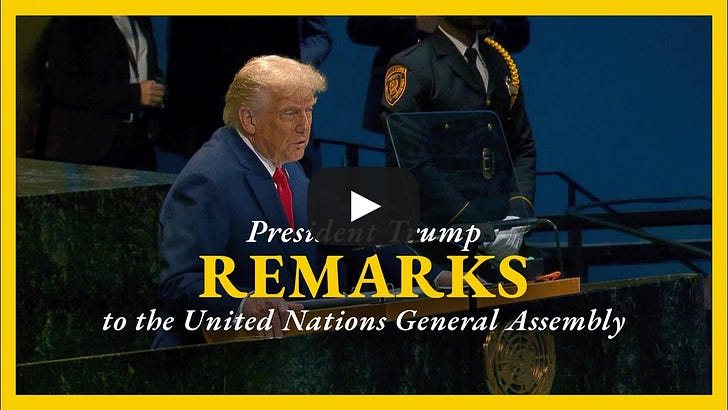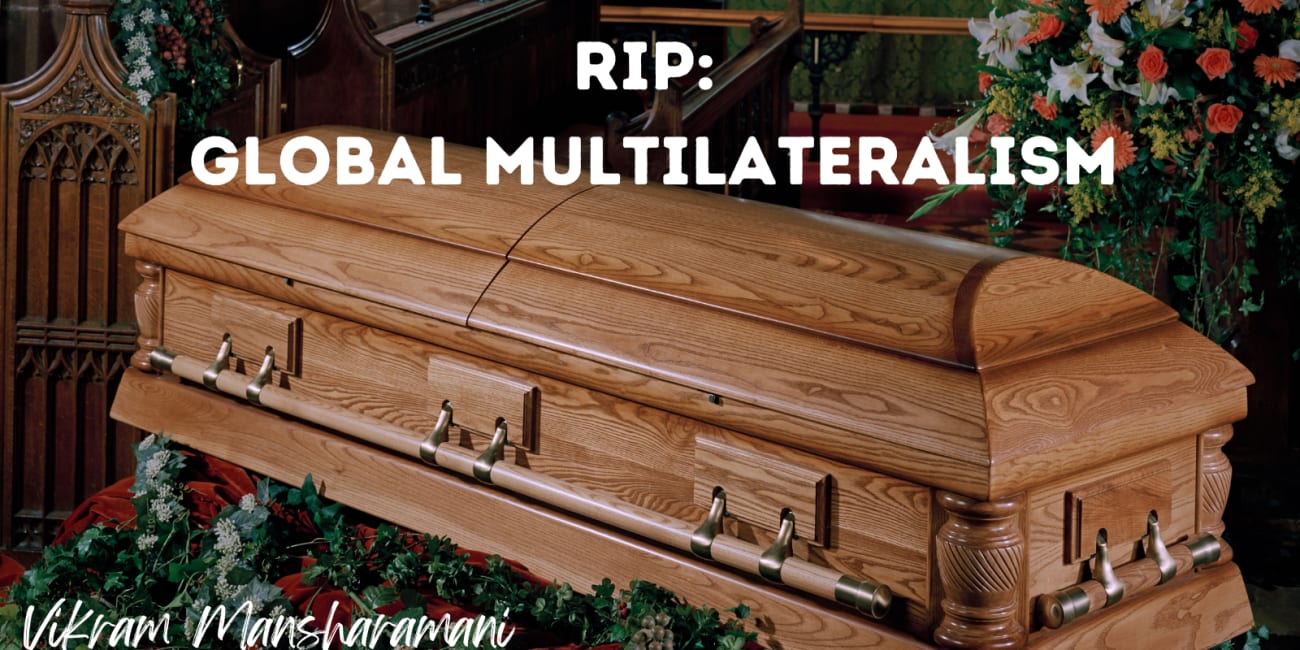|
 |
Global Multilateralism Remains Dead
Trump's speech at the United Nations was another nail in the coffin of global governance.
Two years ago I wrote an article entitled, “Global Multilateralism is Dead.” The piece generated a lot of feedback, most of which was negative. Former colleagues from academia reached out to suggest my views were not helpful and global organizations stopped inviting me to speak at their gatherings. But the years since I penned the piece have delivered plenty of evidence that the arc of history is bending away from global multilateralism.
My thesis, as written in 2023, was that the West encouraged and welcomed China into the governing structures of an interconnected global world in the hopes the Middle Kingdom might reform. Surely, it was believed, a rich China would turn towards democracy as its citizenry would demand freedoms and liberty. A more democratic China wouldn’t be very belligerent and it would then work to retain the global governance structures.
Instead, China hijacked those very institutions and has corrupted them with illiberalism. The Chinese were brought into the World Trade Organization with the understanding that they would reduce tariffs and open up their economy to trade; instead, the Chinese continued to steal intellectual property and unfairly subsidize goods and services to create unfair competitive advantages. China’s middle class grew and prospered as America’s middle class struggled amidst stagnation. In fact, one might reasonably argue that Trump was elected by America’s working class that suffered at the hands of unfair trade.
What about human rights? The UN Human Rights Council’s membership currently includes Afghanistan, Russia, China, Cuba, Somalia, and Sudan…hardly beacons of freedom, liberty and respect for individual rights. It has proven impossible for the United Nations to call out China on its ongoing genocide of Muslims in Western China precisely because China has hijacked the institution.
And the World Health Organization’s utter failure in the face of COVID - including promoting and defending China’s response – completely destroyed its reputation and undermined faith in its neutrality. If the multilateral organization in charge of tracking global health concerns is not able or willing to investigate the origins of the most disruptive and far reaching health emergency in a century, then of what use is the organization?
If multilateralism was on life support, President Trump pulled the plug this week when addressing the United Nations General Assembly. Beset with technical difficulties—the escalator, teleprompter, and sound system mysteriously glitched—Trump said that the UN was ineffective and full of “empty words,” accused leaders of letting their countries “go to hell” with open border policies, and called climate change the “greatest con job.”

Rhetoric aside, I found it hard to disagree with the underlying message Trump delivered: What’s the point of the UN if it doesn’t really do anything? Or for that matter, what’s the point of pretending that global governance can do anything? I’ve discussed these topics (as well as Trump’s speech) with Democrats, Republicans, and Independents. And while many take issue with the messenger’s style, few disagree with the message. Has the UN outlived its useful life?
I’m not suggesting that cooperation and alliances will disappear, but rather that the US-China strategic competition has split the world into two ecosystems, and as the geopolitical and governance implications of this split become increasingly obvious, it is virtually impossible to imagine effective structures that could cross these systems. Global multilateral governance is dead.
|
VIKRAM MANSHARAMANI is an entrepreneur, consultant, scholar, neighbor, husband, father, volunteer, and professional generalist who thinks in multiple-dimensions and looks beyond the short-term. Self-taught to think around corners and connect original dots, he spends his time speaking with global leaders in business, government, academia, and journalism. He’s currently the Chairman and CEO of Goodwell Foods, a manufacturer of private label frozen pizza. LinkedIn has twice listed him as its #1 Top Voice in Money & Finance, and Worth profiled him as one of the 100 Most Powerful People in Global Finance. Vikram earned a PhD From MIT, has taught at Yale and Harvard, and is the author of three books, The Making of a Generalist: An Independent Thinker Finds Unconventional Success in an Uncertain World, Think for Yourself: Restoring Common Sense in an Age of Experts and Artificial Intelligence and Boombustology: Spotting Financial Bubbles Before They Burst. Vikram lives in Lincoln, New Hampshire with his wife and two children, where they can usually be found hiking or skiing.


